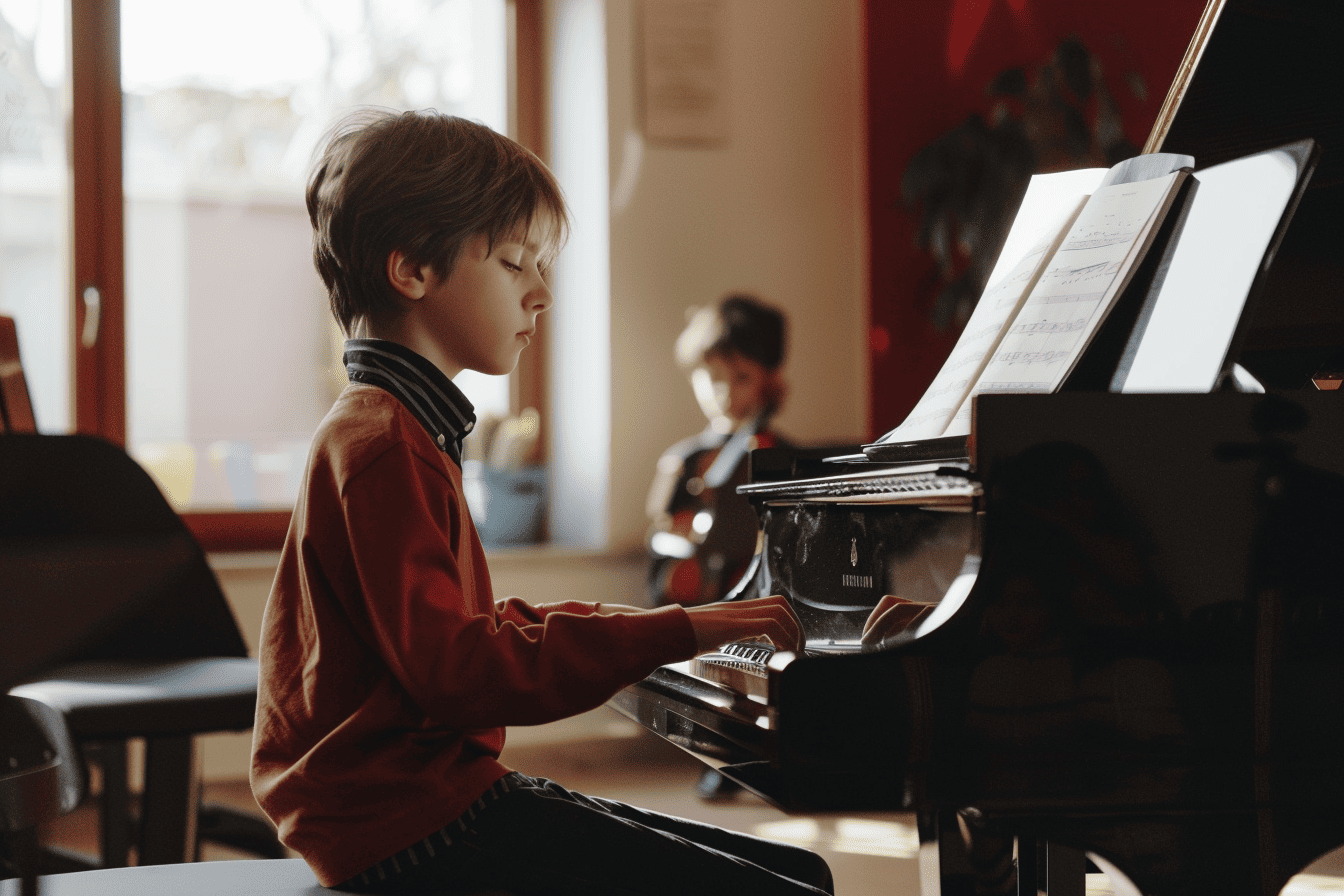There’s a fine line between nurturing talent and burning it out. As parents and teachers, we walk this line carefully. We want children to take music seriously—but not at the expense of joy. We want to encourage discipline—but not pressure. We want progress—but also laughter.
So how do we strike that balance?

Ask: Why is my child learning music? For many families, the answer isn’t “to become a professional.” It’s about growth, creativity, confidence. Keep that purpose at the heart of practice. Celebrate who they’re becoming, not just what they’re achieving.
Set a regular time each day for music—not too long, especially for beginners (15–30 minutes is plenty for young learners). Make it feel safe, relaxed, and low-pressure. Keep instruments easily accessible. Use a wall chart or calendar to mark days of practice with stickers or colors.
Instead of “Did you get it right?”, try:
This shifts the focus from judgment to reflection and curiosity.
If a child dreads every lesson, cries before practice, or suddenly wants to quit everything musical, pause. Talk to the teacher. Listen. Sometimes it’s just a phase. Sometimes the instrument isn’t a fit. Sometimes the pace needs adjusting.
Burnout often disguises itself as laziness. Don’t assume disinterest—dig deeper.
Encourage improvisation. Let them compose silly songs. Allow “off-book” days. Some of the most meaningful music-making happens outside the lesson plan.When music becomes only about perfection, it stops being music. When it includes exploration, wonder, and messiness—it becomes life.